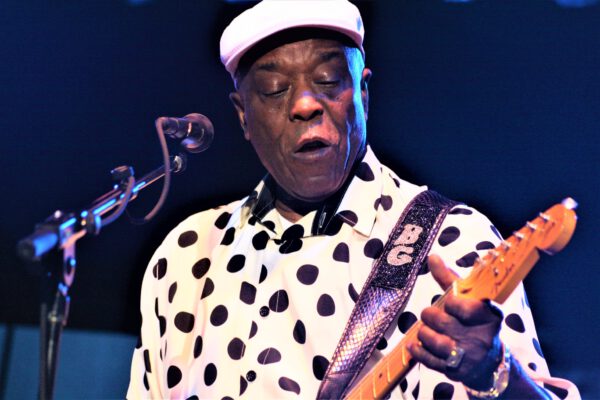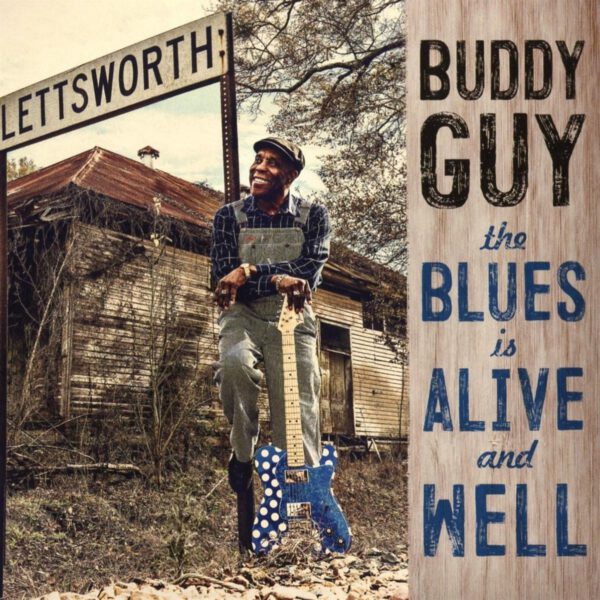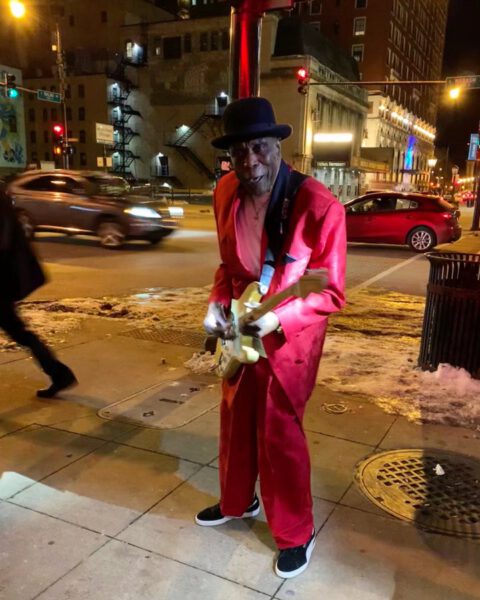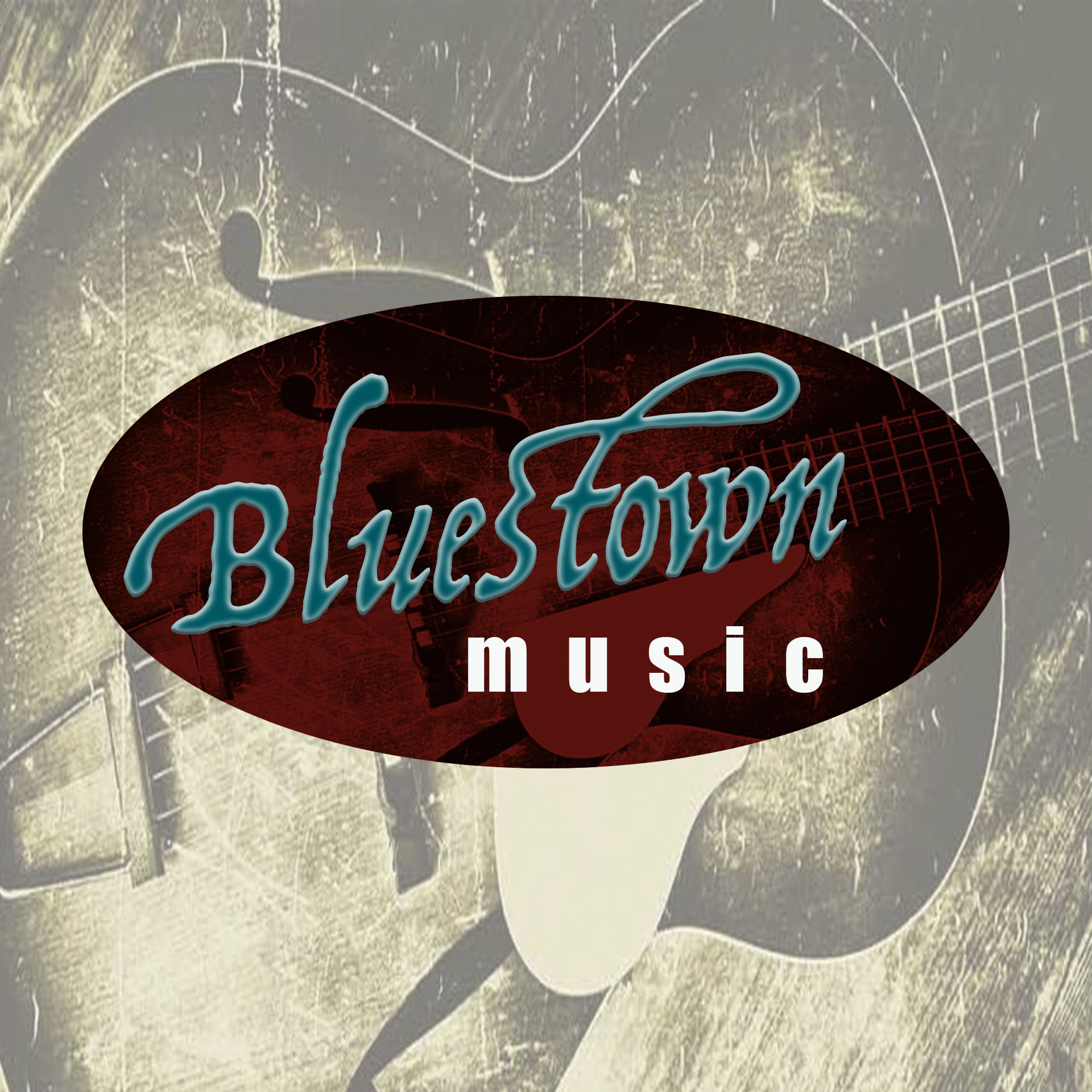Interview I Buddy Guy

Interview I Buddy Guy
Text: Iain Patience
Born To The Blues
There are few great bluesmen who can deservedly be called ‘Legendary.‘ Very few ever make the cut and leave an astonishing legacy of music, a lifetime of contribution and pleasure to the blues canon and world. The late BB King is clearly one who merits the moniker. And his old lifelong friend, the extraordinary Buddy Guy, also readily reaches the heights.
At Home In Chicago
I was able to catch up with Buddy at home in Chicago a few weeks before he turned eighty-five, a remarkable achievement in itself. Buddy was a delight, in great health and planning to keep on keeping on as long as he possibly could. When I mention retirement, he swiftly vetoes the very thought:
“Not yet, not thinking about quitting just yet,”’ he chuckles. “It crosses my mind. You know, you’re getting old. You know my old friend BB King passed away. And I know BB was doing shows, he was singing the same songs maybe three or four times. Well, my memory’s not as good as it was when I was young some years ago. I used to be able to listen to a song, those lyrics maybe once and recall it. But now I have to keep it in my mind more. Sometimes in the studio, I have to read the lyrics while I’m recording. So, retirement comes to your mind at times, though life goes on. I think about maybe relaxing a bit more, letting those young people come through and carry it on.”
Younger Players, Come Through
And Buddy Guy knows what he’s talking about when he suggests letting others, younger players, come through. Few have extended a helping hand to so many over recent years, than Guy himself, with appearances at his ‘Legends’ club in Chicago often highlighting up and coming, new kids on the blues block: speaking recently with Derek Trucks, he recalls being helped hugely by Buddy Guy, who had him working alongside him when he was just hitting his teens: “ Buddy does so much, taking young musicians under his wings and helping everyone so much. He did the same thing with me. I was ten or eleven years old and I was doing shows with Buddy, playing clubs with him, little blues bars, and the thing I remember most about playing with Buddy is the way he would use the dynamic range. He would het the band just so quiet and when you think he can’t get it any quieter he would get quieter, then look at you and the only way to play in those moments is delicately. It’s such a lesson, such a good lesson early on. Whether you know it or not, you take those things on stage with you every night, those moments when it’s directly influenced by those sit-ins with Buddy! Those lessons stick!” Praise indeed from a man who knows the business back-to-front.
Others to benefit from Guy’s tutelage include the likes of Quinn Sullivan – Guy had him onstage aged eight! – and current Alligator artist and jaw-dropping bluesman, Christone ‘Kingfish’ Ingram.

But for now, Guy remains at the top of his game, turning out new albums that are rooted in tradition but always have a spark of modernity and more than a hint of sheer class and quality running through them. Anyone with a doubt should give his last album, launched in 2019, ‘The Blues is Alive and Well,’ a listen. a genuine tour-de-force of inspired picking, remarkable lyricism and pure blues music at its very best. And he marvels at times at the sheer ability of many now breaking through:
“I see young players coming up, you know, young enough to be my grandchildren but they’re playing guitars! And I think, ‘How can they do that? How come I wasn’t that good at that age?! Guy laughs at the very thought. “I listen to them young guys and I think, ‘if they’re good enough, let’s get them out there, give them that chance. Eric Clapton came to New York a while back. I said to him ‘let’s get out and see this young guy. Let’s see this one, this guy can play some!’ Eric listened, he was amazed. ‘Where did you find him?’ he asked. I replied: “’I didn’t find him, I don’t think I found him. He found me!’ We all laughed.”
Moving away from any thoughts of quitting or retiring, Buddy seems truly surprised that he’s still around playing music and simply enjoying life: “Every day I just pinch myself or slap myself that I’m still here, that I’m still alive. I never thought I’d still be here, still be around now making music, doing this! I still remember being on the farm as a nine or ten-year-old. We’d no running water till I was around fourteen, not wanting to go to school, just wanting to play around. Being here as a musician now, I just never even dreamed of that!’
Gospel Music
Guy started out like many others with the sound of Gospel music ringing in his ears and a developing interest in the music itself: “You went to church in those days. Listened to those great singers there. We’d work the farm six days a week then go to church on Sunday, listen to the gospel.”
With tales abounding of how he kicked-off playing a primitive Diddley Bo arrangement, I ask about this as his introduction to musicianship and picking. Guy quickly debunks the myth surrounding this one: “ I didn’t start with no Diddley Bo. My first guitar was a rubber band on nails attached to my mother’s house wall. And a piece of wire that I could move my fingers on to make sounds. So she could hear me play. I remember thinking then, ‘I can manage this!’ Some people made that story about me and a Diddley Bo. But it was never my thing. I got a guitar and I started to learn real fast. I listened to Arthur Cruddup, Robert Johnson, and those guys. I worked real hard, always listening and learning,” he explains.
Chicago And Chess Records
Guy goes on to explain how he left home and moved to Chicago, telling his mother he was off to get a steady job but secretly hoping to play music whenever the chance arose, a detail that leads to the surprising story behind his now famous polka-dot guitars and gear generally: “I left Louisiana in around 1957. I mostly lied to get away. I lied to my mother. I ain’t proud but I told her I was going to get a good job, to make some money to send to her. Then when she passed away, I remembered what I’d promised her. I was the oldest boy and when I left I looked her in the eye and told her I’d drive back down there in a polka-dot Cadillac. Well, that just stuck in my mind. I remembered her and how I’d lied! So, I came up with the idea of polka-dot guitars, shirts, ties and a whole lot of stuff. Then a lot of other people got that polka-dot thing too; they come to the club, maybe women with polka-dot bags, guys with shirts and ties. And that’s all because of me!” Again, Guy laughs at the thought.

Of course, much of the Buddy Guy legend and background revolves around his time with Chess Records in Chicago, so I ask how he feels about those years and what he remembers most: “Well, I was listening to all those guys, people I was learning stuff off. Muddy Waters, Howlin’ Wolf, Willie Dixon, Sonny Boy, Little Walter. Those guys would work in the studio, I’d be there too. Sometimes they’d ring me real early in the morning, before even the milk-rounds. They used to call me and ask me to go over to the studios. They’d say, ‘We’ve been here all night! Trying to get a sound. You got to get over here right now.’ I’d have to get out my bed and run over to the studio. I remember one morning it was Howlin’ Wolf. He wanted me to get there and play, to help put it all together. I told him, ‘Well, if you’ve been there all night and don’t have it, how am I to get it? But you tell me what you want me to do and I’ll be there to do it!’ How I see it was, I was there to learn from those guys. I could just be there and watch and listen, learning all the time. I always felt like I should listen to them, not that they should listen to me.”
Guy remembers the Rolling Stones coming to visit the studio one day while he was busy, working and recording: “These guys walked in. Four or five of them. Long hair and high-heel boots. I thought, ‘What’s this then?’ I didn’t want them there in the studio, with me working. I was told they were looking for a record deal. Musta been around 1964 or 65, I guess.”
Born To The Blues
With so much ground, an entire life in blues music to cover, Guy is happy to relax and run through much of his personal thinking and beliefs: “These days, if you think you’re the best then you’re in for a surprise! There’s always so much more out there. If you don’t listen, you just don’t learn nothing. You know, my mom and dad used to tell me, ‘Whatever you do, don’t be the best in town. Just be the best till the best comes around.’ I still feel I gotta dream more. I still listen to all those guys, Muddy, Wolf, Sonny Boy, Junior (Wells), Larry Johnson, Arthur Cruddup, Lightnin’ Hopkins and Robert Johnson. There is just so much going on. I was able to learn from all those guys. I was born to the blues, a perfect title for me. That was how it was, me and my family. We grew up that way. We didn’t have no technology for farming not the way it is now. They always worked and struggled. They never had the right rain or the right sunshine!”
Guy warms to the theme, adding: “They had to work to live, to eat and live. They lived to work and worked to eat. That’s really all it was back then. If you want to dig down, dig down deep enough, that’s what you call the blues, you know. Always just wondering what tomorrow might bring!”
Eric Clapton And Jeff Beck
Asked if he thinks the blues remains relevant and strong, Guy doesn’t hesitate with his encouraging response: “Here in the US, we had AM Radio Stations that used to play all the old blues guys. Now, it’s all FM stations. They don’t play no Muddy or Wolf. They play stuff by all those young guys, rap, hip-hop. I wish they’d play the old guys, I like to hear them all. It’s what I listen to at home. I still learn from them now. People like Eric Clapton and Jeff Beck do better on those stations. I remember the British Blues Explosion in the 1960s. When I tell Eric or Jeff we all listened to them, they laugh and think that’s crazy, cos they were all listening to us! Eric told me, ‘You know, we didn’t play no blues, till we heard you!’ Nowadays, we all laugh about it.”
Documentary
https://tribecafilm.com/films/buddy-guy-the-blues-chase-the-blues-away-2021
With a recently aired US TV special documentary about the man himself, ‘Blues Chased the Blues Away,’ just behind him on public broadcasting/ PBS in the States, Guy’s place as a true blues legend seems assured. So, his last words have an optimistic streak we can probably all relate to:
“I love the blues so much, I don’t want it to die!”
Website: https://www.buddyguy.net/

